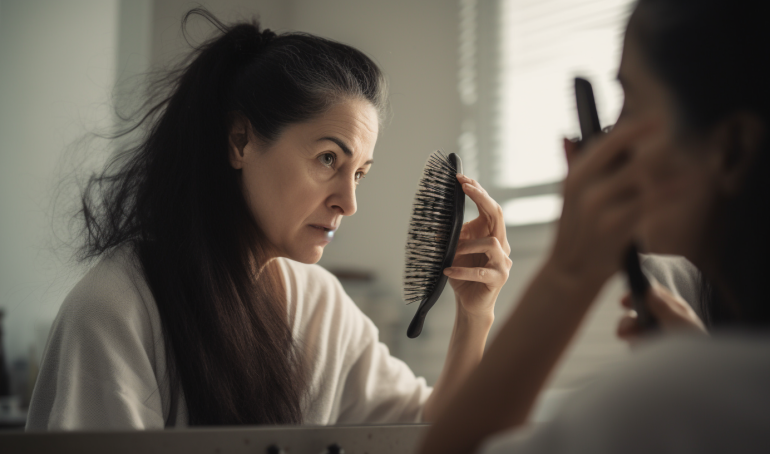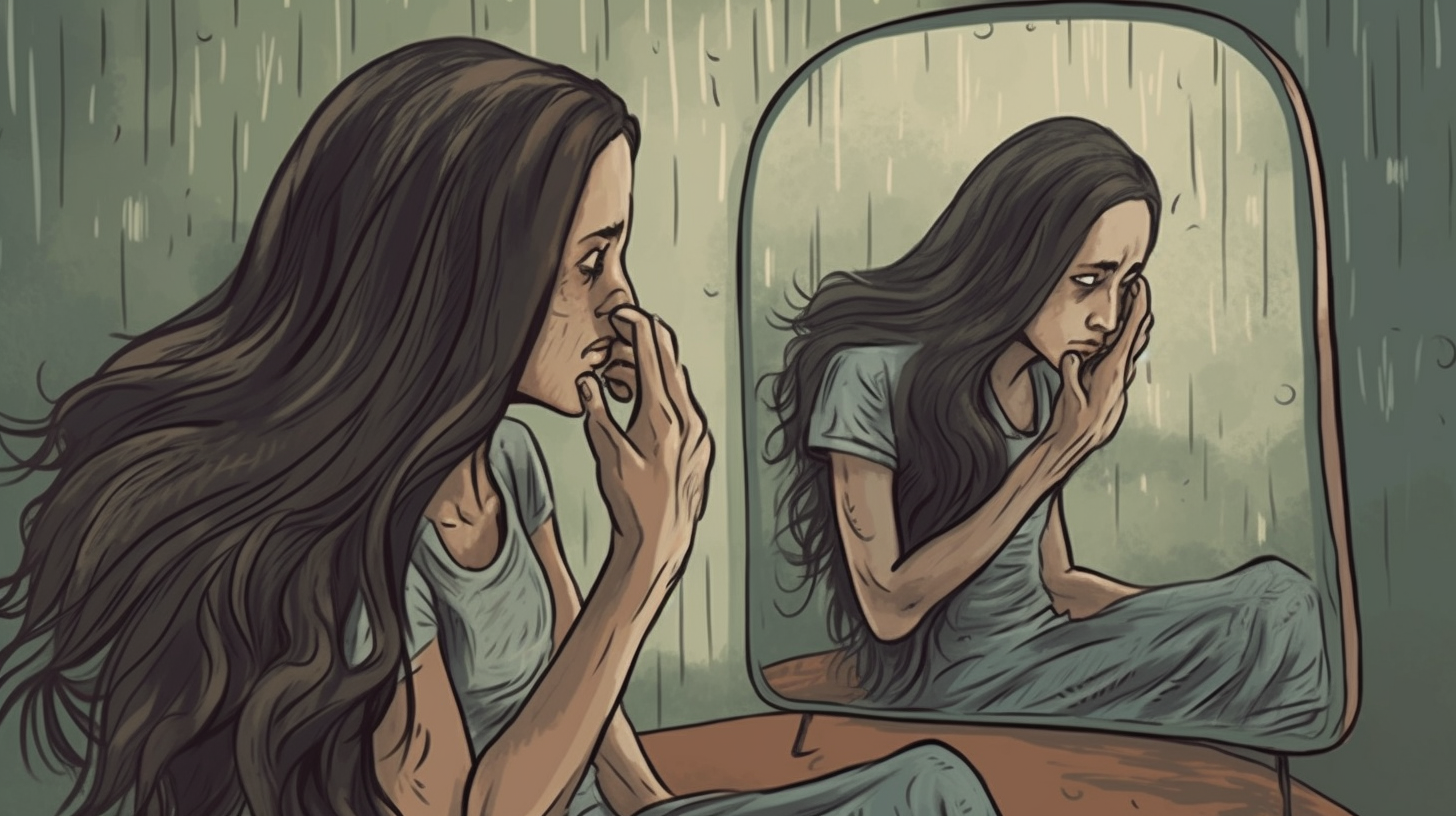
Stress and Hair Loss: Understanding the Connection
Have you ever noticed a significant amount of hair falling out while shampooing or brushing your hair? Hair loss can be a distressing experience for many people, and stress is one of the most common triggers. While it is normal to lose 50-100 hairs per day, excessive shedding can be a sign of an underlying health condition, including stress-related hair loss.
What is Stress-Related Hair Loss?
Stress-related hair loss occurs when there is a disruption in the natural hair growth cycle. The growth cycle consists of three phases: anagen (growth), catagen (transition), and telogen (resting). Stress can cause more hairs to enter the resting phase, leading to excessive shedding and thinning of the hair. Stress-related hair loss can occur in both men and women and may manifest as bald spots or diffuse thinning.
Can Stress Cause Hair Loss?
The short answer is yes; stress can cause hair loss. The body’s response to stress involves the release of stress hormones such as cortisol, which can impact various bodily functions, including hair growth. Cortisol increases inflammation throughout the body, leading to damage in the hair follicles and impeding their ability to produce healthy strands of hair. Additionally, stress can also disrupt other hormones that regulate hair growth.
While everyone experiences some level of stress in their lives, chronic or severe stress is more likely to contribute to hair loss. Chronic stressors such as financial difficulties or relationship problems can lead to prolonged cortisol release, which may impact overall health and result in noticeable changes in the appearance of one’s hair.
Types of Stress-Related Hair Loss
The following are different types of stress-related hair loss:
- Telogen Effluvium: This type of hair loss occurs when there is an increased number of hairs in the resting phase. It typically manifests as diffuse thinning and may occur 2-3 months after a stressful event.
- Alopecia Areata: Alopecia areata is an autoimmune condition that can be triggered by stress. It causes patchy hair loss on the scalp or other parts of the body.
- Trichotillomania: Trichotillomania is a compulsive disorder characterized by pulling out one’s hair, often in response to stress or anxiety.
How to Prevent Stress-Related Hair Loss
The following tips can help prevent stress-related hair loss:
- Manage stress levels: Reducing stress levels through relaxation techniques such as meditation, deep breathing, and yoga can help lower cortisol levels and improve overall health.
- Eat a healthy diet: A balanced diet rich in vitamins and minerals such as iron, zinc, and biotin can promote healthy hair growth.
- Avoid harsh styling practices: Avoid using hot tools such as flat irons, curling irons, and blow dryers frequently. Also, avoid tight hairstyles that pull on the hair such as braids or ponytails.
- Talk to a doctor: If you notice excessive hair shedding or bald spots, talk to a doctor who can help diagnose any underlying medical conditions or recommend treatment options.
Treatments for Stress-Related Hair Loss
The following are some treatments for stress-related hair loss:
- Minoxidil: Minoxidil is an over-the-counter medication that can promote hair growth. It is available in various strengths and formulations and should be used as directed.
- Corticosteroids: Corticosteroids are medications that can reduce inflammation and suppress the immune system. They may be prescribed for individuals with alopecia areata.
- Hair transplants: Hair transplants involve moving hair from one part of the scalp to another. This procedure is typically reserved for individuals with advanced hair loss.
Conclusion
In conclusion, stress-related hair loss is a common condition that affects many people. While it can be distressing, there are many treatments and preventative measures available. Managing stress levels, eating a healthy diet, avoiding harsh styling practices, and talking to a doctor can all help prevent or treat stress-related hair loss. Remember, while some hair shedding is normal, if you notice excessive shedding or bald spots, talk to a doctor who can help diagnose any underlying medical conditions or recommend treatment options.





